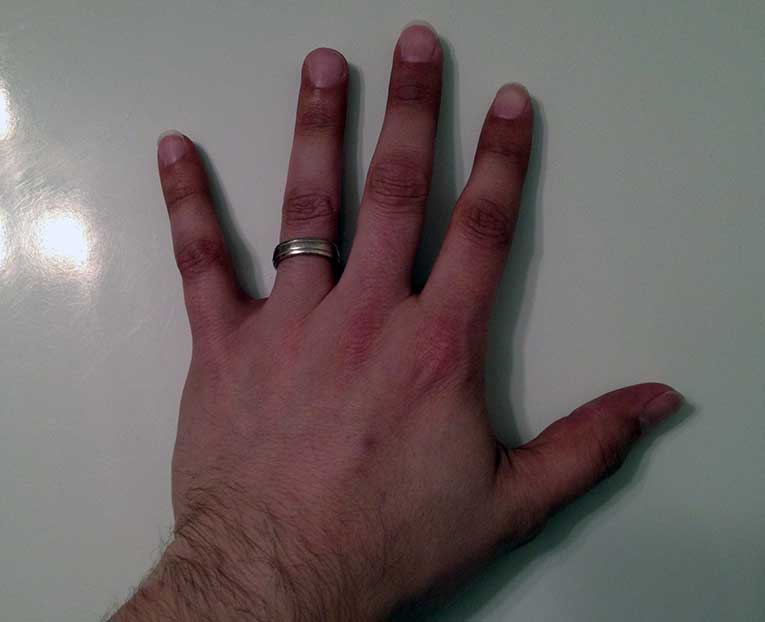January 1, 2013
When I go into work on a Monday following a treatment, I have a few people who ask me how my weekend went. They’re not asking in a “did you do anything cool this weekend” way; they know that the weekend following a treatment are my toughest days. It’s hard to explain what that weekend is like: for the most part I just feel crappy, somewhat nauseous, and completely sapped of any energy whatsoever.
I was familiar with the idea of “fatigue” as a medical term – something that means more than just “tired” – but I didn’t fully appreciate what it meant until I started chemo. Allow me to explain by outlining the few days that followed my last treatment.
I went in for my infusions on Wednesday, as usual. Like every day that I get home from my infusions, I felt terrible that night. I went to bed around 8pm and didn’t wake up until 7am the next morning when I got up for work.
It’s amazing how different I feel on Thursday mornings compared to Wednesday nights. The sleep helps a lot. I went into work on Thursday with my portable infusion pump attached. Thursdays feel pretty normal, actually. It’s a little weird. However, I still went to bed early (around 10) and slept for about 10 hours.
Friday I worked from home since the nurse comes to disconnect me from the portable pump. About an hour or two after that is when the fatigue really sets in and I hit a wall. So, here’s the sequence of events:
After my nurse disconnected me and left, I took a long shower. Since I can’t take a full shower for two days with my pump attached, this feels amazing. After I got out of the shower, I laid down on my bed, “just for a second”. Still in my towel, I pulled my robe over me and the next thing I knew it was about half an hour later and I was waking up.
At this point, I put on some pajamas and got into bed. Keep in mind that it’s about 3pm at this point. Also keep in mind that it took me about 15 minutes from waking up and thinking “I should put on some pajamas and get into bed, rather than lying on top of it in a wet towel” to actually doing it. This is the key part of fatigue (at least for me). Doing anything takes a long time between realizing that I want to do it and actually making my body move and doing it.
Once I finally got into bed, I slept for about 3-4 hours. I woke up, had something to eat, and spent a couple of hours on the couch. I went to bed around 9pm and slept until about 11am the next day, despite having taken a 3-4 hour nap in the afternoon.
Saturday some friends came to visit in the afternoon. We really enjoyed seeing them, but thankfully they came to us and all I had to do was sit and talk. I wouldn’t have been up for much more. After they left, I laid on the couch and watched movies/TV. To illustrate the point once again, there was a point at which I said to my wife, “I’ll be right back, I need to get up and use the bathroom”. Half an hour later, when I hadn’t moved, she said, “Didn’t you say you needed to get up?” It took another 15 minutes before I actually did. That’s the fatigue again, working against whatever my brain thinks. I went to bed around 10pm on Saturday, and slept until after noon on Sunday.
Sunday I was still draggy, but starting to feel a bit better. The more I sleep, the better I feel, and so I don’t really mind that I slept the morning away. I spent the day not doing very much, and went to bed around 10:30pm.
Normally, I go into work on Mondays after my treatment, but I woke up on Monday morning and still didn’t feel great. Combined with the fact that it was New Year’s Eve day and there weren’t any meetings scheduled, I opted to work from home (thankfully, my work has been very accommodating and flexible where this is concerned). Not having to take the train back and forth to Boston certainly helps me feel less worn down.
By Monday evening/Tuesday morning I was feeling more normal, and I’ll be going into work as usual tomorrow. There were still a few moments today, though, where I was sitting on a chair and told my wife, “I’m going upstairs… I’ll be back in a few minutes”, and then it was 10-15 minutes before I moved.











